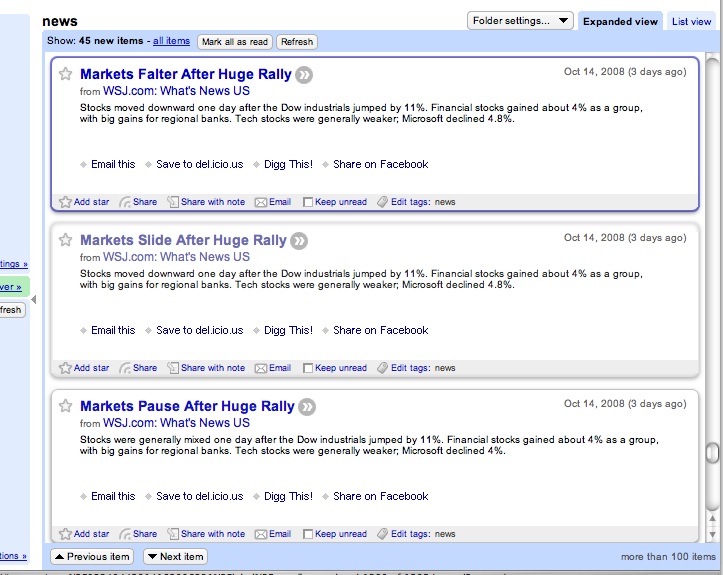Apropos of a lecture I attended yesterday by Bruce Horner* and some general thoughts I've been having lately about this issue, I've decided to collect as many reasons as I can think of for assigning some sort of "personal essay" as the first assignment in a college writing course. These are reasons I've heard other people cite and reasons I came up with myself when examining this question as a thought exercise. I'm not saying all of these are good reasons by any means, only trying to compile a list. Please let me know if you have other reasons.
1. Start inward, go outward: or from individual concerns to social concerns. This is one of the ideas Horner critiqued, actually; he argued that it rests on assumptions that those two things are uniform and monolithic (I would add, not to mention mutually exclusive).
2. Building blocks: provide students "an initial experience in expression" which they can build on as they move on to argumentation.
3. When content is irrelevant: personal experience provides expedient subject matter when the subject matter of the essay (and the student's mastery of it) is not what one wants to assess. For example, personal experience is often used as a topic for diagnostic essays/proficiency exams in which one wants to assess students' grammar, mechanics, sentence structure, vocabulary, etc.
4. In the interim: students may lack experience with research-based arguments, so the teacher doesn't want to jump right in with that kind of writing yet. As the instructor is in the process of teaching research and argument, s/he assigns students to write about something they know, so that they're always doing some writing.
5. Descriptive skills first: the teacher wants to start off the class by teaching a certain skill set which includes vivid description and specific detail.
6. Unlearn: the teacher wants to get students beyond the five-paragraph essay format they may have had in high school, and as quickly as possible. As a personal narrative doesn't lend itself well to the FPE structure, it hastens this kind of unlearning.
7. Hailing students as writers: the teacher wants students to think about themselves as writers from the very beginning of the course, so s/he assigns a literacy narrative type of assignment to facilitate students' reflections on their past experiences with writing.
8. First contact with theme: the particular FYW course has a theme, and as a way to get students thinking about that theme (gender, cyberspace, labor, what have you), the teacher assigns a personal essay about the student's experience with the course theme.
[Edited to add...]
9. Writing from personal experience can be an exercise in amplificatio
10. Personal experience is easy to write about
And here are some other reasons for assigning personal writing which I'll include for the sake of comprehensiveness. These reasons, however, are reasons for assigning personal writing in general. I'm more interested in "Essay 1: Personal Narrative" reasons that call for putting a narrative first in an assignment sequence.
1. Empowerment: if personal writing is the province of the socially and politically privileged, assigning this kind of writing helps students have access to this discourse.
2. Self-knowledge/student interest: college is thought of as a time to learn more about oneself. I've asked in classes before as a short in-class writing assignment, for example, "what do you most want to learn?" The overwhelming majority of students write "I want to learn about myself/find out who I am."
3. Find your voice: personal writing can be a way to discover what one's voice sounds like. It's a way to cultivate an ethos and style that a student can (potentially? presumably?) take with him/her to other genres and contexts.
4. Site of negotiation: I got this one from Horner. It conceives of the personal as a site of negotiation with issues of ethics, politics, epistemology, social construction, etc.
[Edited to add...]
5. Something for everyone: while some students don't like writing from personal experience, others do, so you assign both outside-source-based and experience-based essays.
6. Refutatio: if you assign an article written by an author who is writing about a group of people of which the students are a part (Cajuns, young people, college students, etc.), students could write an auto-ethnography that responds to the author's claims.
7. Investment: you want students to feel some personal stake (ownership, authority) in the writing they do. If they're writing about a topic they don't care about, they won't care about the research involved, organization, style, etc. of the paper. But if they are writing from personal experience, they (presumably) care more about how that experience is represented on the page and will spend more thought on crafting the essay.
* abstract here:
"Rewriting the Personal"
Examining the contradiction between those calls for incorporating
personal writing into scholarly texts to defy the strictures of recent
critical theory and those calls for using personal writing to comply with
those strictures, I argue that confusion over what constitutes the personal
has led to this discrepancy in positions on its use and prevents us from more
productive engagement with the personal in public discourse in both our
writing and our teaching.




